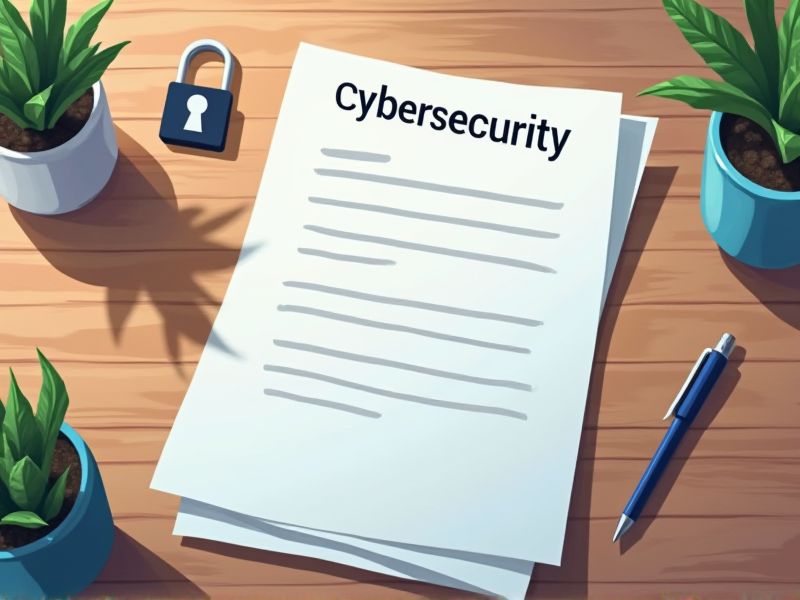
Cybersecurity specialists operate in an environment where threats continuously evolve, necessitating a robust understanding of new technologies and threat mitigation strategies. Certifications offer a structured way to acquire specialized knowledge deemed essential for safeguarding sensitive information. Holding certain certifications also signals to employers and clients that a specialist possesses verified skills and expertise in critical areas of cybersecurity. Below are some essential certifications you may need as a Cybersecurity specialist.
CompTIA Security+
CompTIA Security+ provides foundational knowledge in essential security concepts, setting a baseline for understanding cybersecurity frameworks. It validates an individual's ability to assess an organization's security posture and implement appropriate security solutions. Possessing Security+ certification enhances credibility, making it easier to gain trust and secure roles within cybersecurity teams. Companies often require or prefer candidates with this certification, aligning hiring processes with recognized industry standards.
CISSP (Certified Information Systems Security Professional)
The CISSP certification equips cybersecurity specialists with a robust understanding of security principles and practices, enhancing their ability to protect information assets. It signals to employers and stakeholders that a professional has met global standards for security knowledge, which can lead to increased job opportunities and career advancement. Organizations benefit from hiring CISSP-certified professionals as they often have a systematic approach to risk management and security strategies. The certification also fosters a commitment to ethical practices and continued learning, which is critical in the rapidly evolving field of cybersecurity.
CEH (Certified Ethical Hacker)
A CEH certification arms cybersecurity specialists with the knowledge to anticipate and identify security vulnerabilities, strengthening an organization's defenses against cyber threats. By understanding hacker strategies, professionals with this certification can better devise countermeasures and mitigate potential attacks. The certification emphasizes practical, hands-on experience, ensuring specialists are well-prepared to handle real-world scenarios. In an era where cyber threats are increasingly sophisticated, possessing a CEH credential differentiates professionals as proficient and reliable assets in cybersecurity domains.
CompTIA CySA+
The CompTIA CySA+ certification addresses the skill gap by focusing on threat detection and response, which enhances a cybersecurity specialist's ability to combat advanced persistent threats. As organizations increasingly prioritize cybersecurity, the demand for validated expertise grows, making CySA+ a valuable credential for professionals seeking career advancement. CySA+ provides hands-on experience with security analytics and monitoring, critical for identifying vulnerabilities and managing incidents. Its emphasis on real-world scenarios helps specialists understand and apply cybersecurity strategies effectively in dynamic environments.
OSCP (Offensive Security Certified Professional)
Achieving the OSCP certification boosts practical penetration testing skills, as it requires candidates to actively exploit vulnerabilities in a controlled setting. This hands-on experience enhances a cybersecurity specialist's ability to identify and neutralize real-world threats. Employers often seek OSCP-certified professionals due to their demonstrated problem-solving capabilities and technical proficiency. Possessing this certification can lead to better job prospects and career advancement in a competitive field.
CISM (Certified Information Security Manager)
CISM certification enhances a cybersecurity specialist's credibility by demonstrating expertise in managing, designing, and assessing information security programs. This certification provides a structured framework that helps in aligning cybersecurity strategies with business goals, thereby improving risk management. The CISM credential signifies proficiency in governance and risk management, which is essential for making informed security decisions. Organizations value CISM-certified professionals as they often possess a broad understanding of compliance and regulatory requirements, leading to more comprehensive security strategies.
CISA (Certified Information Systems Auditor)
Cybersecurity specialists need CISA to validate their expertise in identifying and assessing IT risks, which directly influence an organization's security posture. Earning CISA provides a standardized understanding of controls and auditing, ensuring cybersecurity measures align with regulatory requirements and industry standards. Without CISA, a specialist may lack comprehensive knowledge in audit processes, potentially impacting the effectiveness of security solutions. CISA certification also establishes credibility with employers, leading to increased trust and responsibility in cybersecurity management roles.
CCSP (Certified Cloud Security Professional)
The CCSP credential enhances a cybersecurity specialist's understanding of cloud security architecture and its implementation. This certification signals proficiency in managing cloud environments, critical for safeguarding data in increasingly cloud-focused infrastructures. Adoption of cloud services is growing rapidly, increasing the demand for experts who can effectively mitigate associated risks. CCSP holders are recognized as having a comprehensive grasp of cloud security, making them valuable assets in ensuring organizational data protection.
GIAC Security Essentials (GSEC)
The GIAC Security Essentials (GSEC) certification equips cybersecurity specialists with essential knowledge in information security concepts and practices, strengthening their ability to protect against threats. Holding the GSEC certification validates a specialist's expertise in understanding complex security concepts, which can enhance their job prospects and credibility. The certification focuses on practical skills that are immediately applicable, such as network security, cryptography, and incident handling. Organizations often seek professionals with GSEC certification due to their proven capability in managing risks and safeguarding digital assets.
CompTIA PenTest+
CompTIA PenTest+ equips cybersecurity specialists with hands-on penetration testing skills, vital for identifying and securing vulnerabilities in systems. Cyber threats are constantly evolving; certification ensures specialists stay informed about the latest tactics and tools used by attackers. Companies seek certified experts to safeguard their networks, resulting in increased demand for professionals with demonstrable competencies. PenTest+ validates a specialist's ability not only to identify vulnerabilities but also to report and communicate findings effectively to key stakeholders.
Summary
When you obtain cybersecurity certifications, your skillset becomes more refined and aligned with industry standards. This often results in heightened credibility and opens doors to more advanced job opportunities. Employers tend to perceive certified professionals as more trustworthy, which can lead to increased responsibility and higher salaries. Certifications may also facilitate your transition into specialized cybersecurity roles, enhancing career growth.
